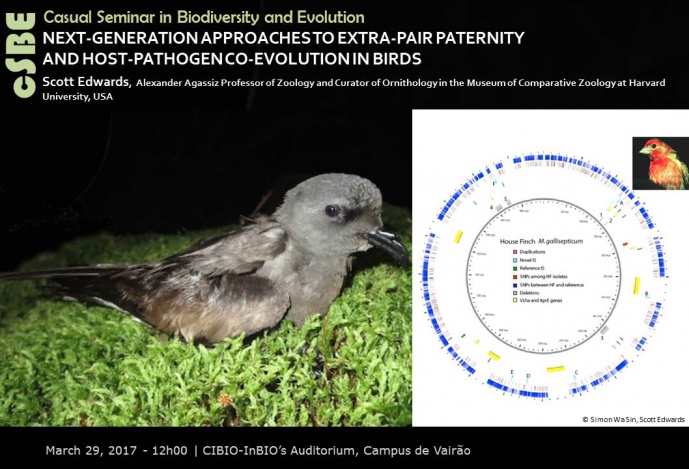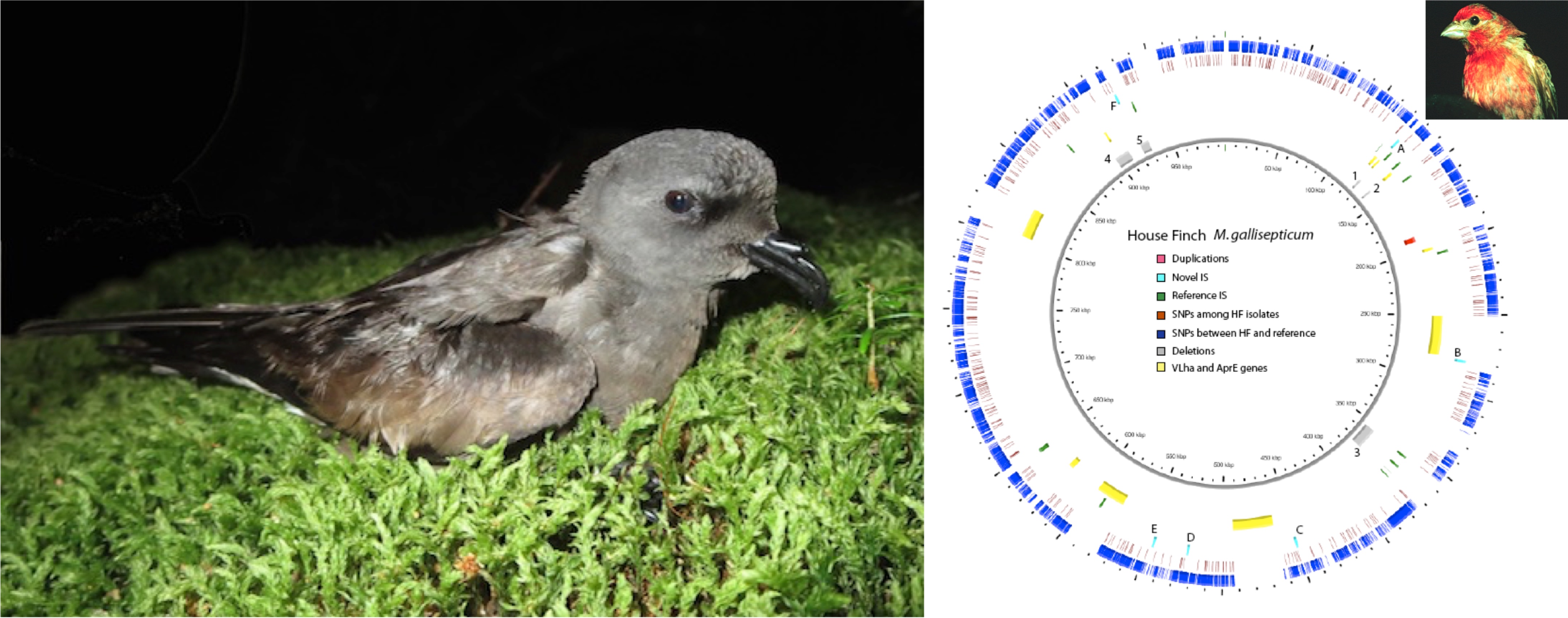NEXT-GENERATION APPROACHES TO EXTRA-PAIR PATERNITY AND HOST-PATHOGEN CO-EVOLUTION IN BIRDS

CASUAL SEMINAR IN BIODIVERSITY AND EVOLUTION

In this talk I will discuss recent work in my lab in the area of behavioral ecology and host-pathogen interactions. I will first present some recent results applying the Rad-seq technique and MHC variation to understanding patterns of extra-pair paternity and mate choice in Leach’s Storm Petrel (Oceanodroma leucorhoa), a small pelagic seabird with enhanced capabilities for olfactory discrimination. Next I will present the latest results from our long-term study of host-pathogen co-evolution focusing on the evolutionary consequences of a bacterial pathogen, Mycoplasma gallisepticum, on an avian host, the House Finch, in North America. Both Rad-seq and whole-genome resequencing clarify the evolutionary history and population responses of the host to the pathogen over the last 20 years, as well as how the pathogen evolved as it colonized a new host. In particular, the naturally occurring CRISPR array of the Mycoplasma began to degrade as it switched hosts from poultry to house finches, paving the way for a novel reorganization of its genome. Together these studies point to opportunities and challenges of documenting rapid evolutionary change in natural populations using next-generation data.
Professor Edwards studies diverse aspects of avian biology, including evolutionary history and biogeography, disease ecology, population genetics and comparative genomics. He has conducted fieldwork in phylogeography in Australia since 1987 and conducted some of the first phylogeographic analyses based on DNA sequencing. In the last 10 years, Prof. Edwards has contributed to the development of novel methods for estimating phylogenetic trees from multilocus DNA sequence data. His recent work uses comparative genomics in diverse contexts to study macroevolutionary patterns in birds, including the origin of feathers and the evolution of flightlessness.
He has served as President of the Society for the Study of Evolution, the Society of Systematic Biologists, and the American Genetic Association. He is a member of the American Academy of Arts and Sciences (2009), a Fellow of the American Association of the Advancement of Science (2009), and a member the National Academy of Sciences (2015).
Scott Edwards, Professor at the Department of Organismic and Evolutionary Biology at Harvard University, will be visiting CIBIO-InBIO, Porto, between the 16 and 30 of March. His visit represents a unique opportunity to engage with one of the foremost evolutionary biologists of our time. Professor Edwards uses molecular tools to understand the processes and mechanisms that generate biodiversity. His research has made major contributions in many fields including: the reconstruction of the tree of life – and on the relationships between dinosaurs birds and reptiles in particular; biogeography and phylogeography of birds; the evolution of the immune system and parasite resistance; genome evolution; and the development of statistical methods able to make sense of the wealth of genomic data currently being produced. Above all this, Professor Edwards is a passionate naturalist.
Professor Scott Edwards will be available to meet researchers and students during his stay. Rita Araújo (rita.araujo@cibio.up.pt) and Martim Melo (melo.martim@gmail.com) will be responsible for scheduling and planning meetings.
[Host: Martim Melo, Tropical Biology]
Image credits: Simon Wa Sin, Scott Edwards